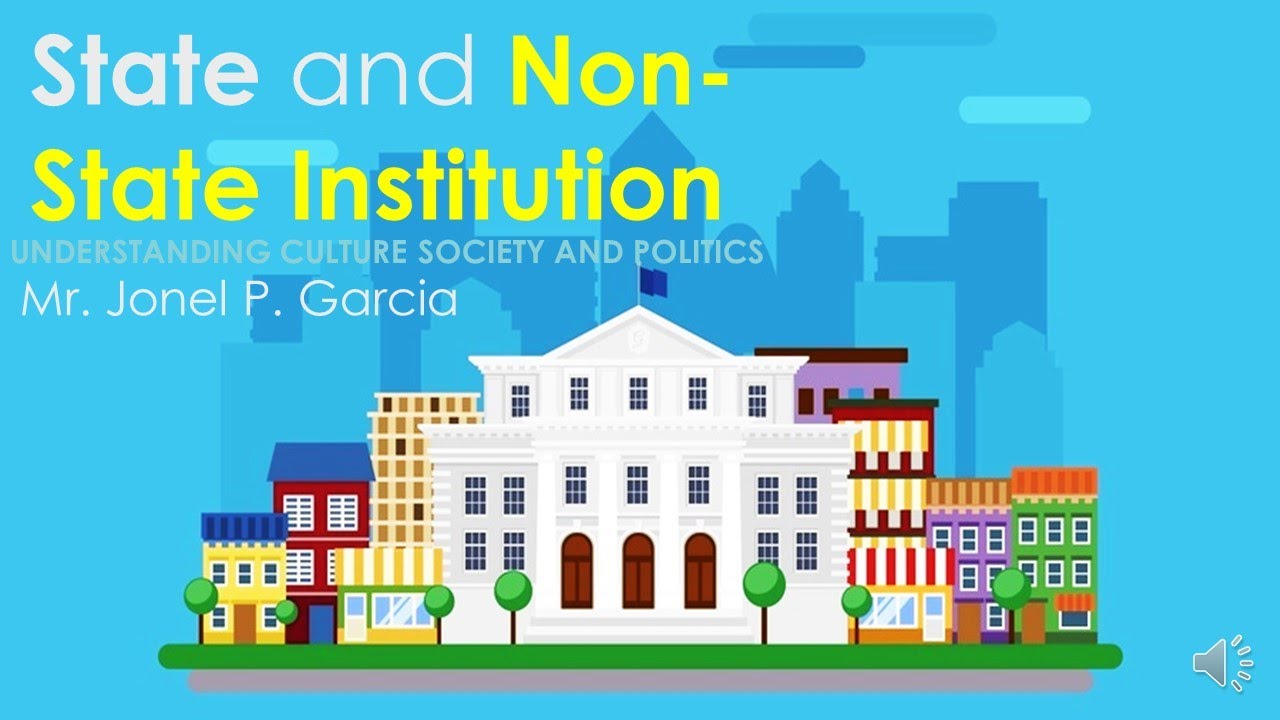Hubungan Antar Lembaga Negara - HUKUM TATA NEGARA
Summary
TLDRThis educational video discusses the relationships between various state institutions in Indonesia, focusing on their functions and interactions. It covers key aspects such as the functional relationships between the President, the DPR (People's Representative Council), the DPD (Regional Representative Council), the Constitutional Court (MK), the Judicial Commission (KY), and other state bodies. The video explores topics like legislative processes, supervision, accountability, conflict resolution, and membership, providing an overview of how these institutions collaborate within the framework of the Indonesian Constitution. The discussion is designed to deepen understanding of Indonesia's system of governance.
Takeaways
- 😀 The relationships between state institutions in Indonesia are critical to understanding the functioning of the government.
- 😀 There are several types of relationships between these institutions, including functional, supervisory, dispute resolution, reporting, and membership relations.
- 😀 Functional relationships include collaboration between the DPR (People's Representative Council), DPD (Regional Representative Council), and the President in lawmaking, especially concerning regional autonomy.
- 😀 The relationship between the DPR, President, and the Judicial Commission (KY) in the appointment of judges highlights the division of powers in Indonesia's judicial system.
- 😀 The DPR oversees the President’s governance and holds the power to approve or reject government regulations and decrees under the authority of the President.
- 😀 The Constitutional Court (MK) resolves disputes between state institutions, including those related to the interpretation of the Constitution and disputes over the legality of laws.
- 😀 The President and the DPR are involved in accountability mechanisms, such as impeachment or the removal of the President or Vice President for legal violations.
- 😀 The KPK (Anti-Corruption Commission) works closely with the police and prosecutors to investigate corruption cases, ensuring oversight of government operations.
- 😀 The MPR (People’s Consultative Assembly) is composed of members from the DPR and DPD, creating a unique representation system that can be seen as unicameral, bicameral, or even tricameral in nature.
- 😀 The system of checks and balances in Indonesia ensures that power is distributed and that each institution, such as the President, DPR, DPD, and MK, plays a vital role in the country's governance.
- 😀 A strong understanding of Indonesia’s Constitution and related laws is essential for comprehending the relationships and duties of these state institutions.
Q & A
What is the primary focus of the video on constitutional law?
-The video primarily focuses on the relationships between state institutions in Indonesia, including their functions, powers, and interactions with each other, especially in the context of lawmaking, oversight, and accountability.
What are the five classifications of relationships between state institutions discussed in the video?
-The five classifications discussed are: functional relationships, supervisory relationships, relationships regarding reporting and accountability, membership relationships, and relationships related to the resolution of disputes.
How do the Indonesian Parliament (DPR) and the President work together in lawmaking?
-The President and the DPR collaborate in lawmaking, where the President plays a key role in proposing laws, while the DPR is involved in the approval process. The DPD (Regional Representative Council) has a limited role, primarily concerning laws related to regional autonomy.
What is the role of the DPD in the lawmaking process?
-The DPD's role in the lawmaking process is limited to providing input on laws related to regional autonomy, such as the formation of new regions or the decentralization of powers.
How does the relationship between the President and DPR work concerning amnesty and abolition?
-The President has the authority to grant amnesty and abolition, but must first seek consideration from the DPR before making decisions in these areas.
What is the relationship between the Judicial Commission (KY) and the DPR regarding the appointment of Supreme Court Judges?
-The Judicial Commission (KY) has the authority to propose candidates for Supreme Court Judges, while the DPR must approve them. The President is responsible for formally appointing the judges.
How does the Audit Board of Indonesia (BPK) interact with other institutions like the DPR and the President?
-The BPK audits government finances and is involved with the DPR and DPD in the selection of its members. The President has the final say in the appointment of BPK members, following recommendations from the DPR and DPD.
What is the supervisory relationship between the DPR and the President?
-The DPR exercises oversight over the President's performance in governing the country. This relationship ensures that the executive branch is held accountable for its actions and policies.
What role does the Constitutional Court (MK) play in ensuring the constitutionality of laws?
-The Constitutional Court (MK) reviews the constitutionality of laws passed by the DPR, DPD, and President to ensure they align with the Constitution of Indonesia.
How does the relationship between the KPK, the police, and the Attorney General’s Office work?
-The Corruption Eradication Commission (KPK) collaborates with the police and the Attorney General’s Office in investigating and prosecuting corruption cases, ensuring that law enforcement works together in addressing corruption within the government.
Outlines

This section is available to paid users only. Please upgrade to access this part.
Upgrade NowMindmap

This section is available to paid users only. Please upgrade to access this part.
Upgrade NowKeywords

This section is available to paid users only. Please upgrade to access this part.
Upgrade NowHighlights

This section is available to paid users only. Please upgrade to access this part.
Upgrade NowTranscripts

This section is available to paid users only. Please upgrade to access this part.
Upgrade NowBrowse More Related Video

Materi PPKn : Lembaga-Lembaga Negara Menurut UUD 1945 NRI

Pengertian Konstitusi | Dr. Titin Purwaningsih, S.IP., M.Si.

Lembaga Lembaga Negara Menurut UUD Negara Republik Indonesia Tahun 1945 - PPKn Kelas 10

Fungsi Manajemen Pelaksanaan dan Pengorganisasian

STATE AND NON-STATE INSTITUTIONS #UCSP

LEMBAGA JASA KEUANGAN PERBANKAN
5.0 / 5 (0 votes)